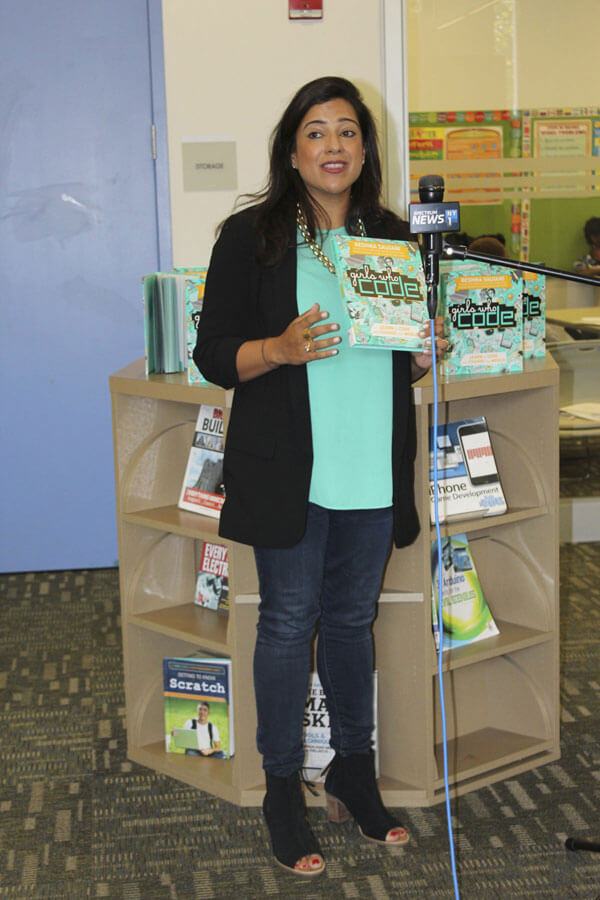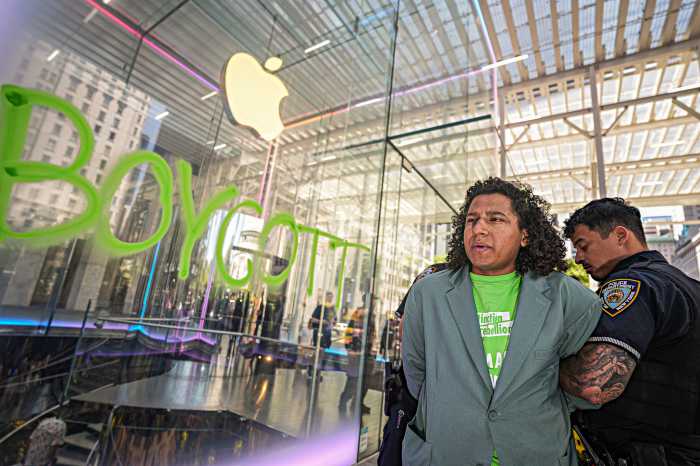By Naeisha Rose
Women are better coders, but are less likely than their male counterparts to get a job in a STEM field without connections, according to a peer-reviewed study conducted by PeerJ in February 2016.
When women sent out coding suggestions to organizations they had no ties with and their gender was not revealed, their proposals were accepted more frequently than those by men. But as they made the same inquiries to similar institutions and revealed their gender, they were hired less, according to the scientific research journal.
In 2016, women made up only 27 percent of computer science professionals, according to the U.S. Bureau of Labor Statistics.
Hoping to close that gap is Reshma Saujani, the CEO of and Founder of Girls Who Code, an organization working to help usher young women into the field of coding.
In collaboration with AT&T, Girls Who Code donated 800 non-fiction computer science and coding books, published by Penguin, to Central Library located at 89-11 Merrick Blvd. in Jamaica.
“Girls Who Code: Learn to Code and Change the World” is the first of 13 books in a series of nonfiction and fiction books produced by the organization.
Saujani became inspired about introducing young girls to coding after visiting schools while running for Congress in 2010, and again later for the city public advocate’s seat in 2013. Although she did not win those elections, she did gain perspective when she saw almost no girls in STEM classes.
“I’m passionate about this issue because this is about opportunity,” Saujani told a news conference at the Central Library, where the books were being given out.. “This is all about jobs.”
As the daughter of Ugandan refugees who came to the United States in the 1970s, going to the library and having a great education was something the Yale graduate’s parents instilled in her. Now, it’s what she wants to impart to young women who may have an interest in coding, but think they can’t achieve it because the field is portrayed as a boys’ only club.
“No matter how tired my father was, he always took me to the library to learn,” said Saujani, the first Indian-American woman to run for Congress. “Their resilience is why I am here today.”
During the press conference for the book that was released Tuesday, Amina Grant, 17, from Hollis picked up a copy.
“I heard what she said, and while I’m not typically a computer girl, I have friends who are into computer science,” Amina said. “I’m not familiar with the topic, but why not see what’s it about?”
Marissa Shorenstein, the AT&T East President, was glad to be at the book launch at the library.
“I thought this would be a great opportunity for AT&T to help young women specifically in STEM fields,” Shorenstein said. “They might be eligible for jobs at a company like AT&T, and one of the things we struggle with is to ensure diversity in those areas of our business.”
Dennis Walcott, the president of Queens Library, believes the Central branch was the perfect place to launch the book.
“One of the key things about me is spreading the word,” Walcott said. “We have 11 million people who walk through our doors every year.”
“Far too many girls and young women are not getting a chance at technical skills and at building and creating things,” Saujani said. “I hope they pick up this book and say ‘this is cool, and I want to learn more.’ ”
Reach reporter Naeisha Rose by e-mail at nrose

































